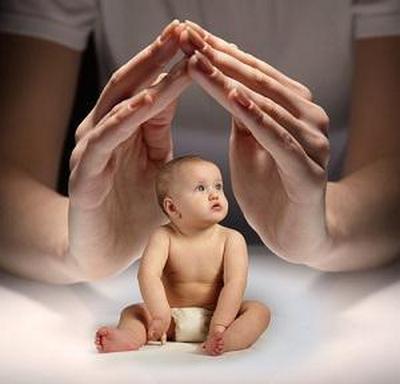Recent Blog Posts
Tips for Your Day in Divorce Court
 Divorce is often a challenging process, but there is one aspect of the experience many people report being the most stressful: their time spent in court. Most people have never set foot in a courtroom prior to their divorce, and while there are ways to avoid court room battles, such as mediation, many couples find court to be unavoidable. Without prior knowledge of how a courtroom procedure works, the process can be nerve-wracking. How should you behave? What should you wear? What should you expect? With a little prior planning, and an understanding of the process going in, you can help relieve your courtroom nervousness and have a successful experience. Here is what you need to know:
Divorce is often a challenging process, but there is one aspect of the experience many people report being the most stressful: their time spent in court. Most people have never set foot in a courtroom prior to their divorce, and while there are ways to avoid court room battles, such as mediation, many couples find court to be unavoidable. Without prior knowledge of how a courtroom procedure works, the process can be nerve-wracking. How should you behave? What should you wear? What should you expect? With a little prior planning, and an understanding of the process going in, you can help relieve your courtroom nervousness and have a successful experience. Here is what you need to know:
Plan Ahead With Your Attorney
No one should be expected to go to a day in court without preparation beforehand. Any quality divorce attorney will meet with their client to review everything about their day in court, handling topics like what you will be expected to say, what issues the hearing will discuss, and how the court process will go. Rather than being caught off guard during your hearing, meet with your attorney ahead of time to prepare yourself. Strategizing in advance will help you feel ready to face your time in court, so it is recommend that you set aside time to meet with your attorney before every court session, as different areas of your divorce may be covered at different times.
Can Divorce Affect My Credit?
 Divorce can be difficult, both emotionally and financially. In addition to costly legal fees, asset division, child support, and other items that can take a financial toll, people often wonder if their credit score can be affected in any way by divorce. Having a healthy credit score is a major key to financial independence post-divorce, as many possible future changes, such as renting a new apartment or purchasing a vehicle, require a good credit score. There are a few ways that divorce can positively or negatively affect your credit score. If you are about to divorce, or already in the midst of one, here are a few things to pay attention to regarding your credit score.
Divorce can be difficult, both emotionally and financially. In addition to costly legal fees, asset division, child support, and other items that can take a financial toll, people often wonder if their credit score can be affected in any way by divorce. Having a healthy credit score is a major key to financial independence post-divorce, as many possible future changes, such as renting a new apartment or purchasing a vehicle, require a good credit score. There are a few ways that divorce can positively or negatively affect your credit score. If you are about to divorce, or already in the midst of one, here are a few things to pay attention to regarding your credit score.
You Are Still Responsible for Shared Debt
Most married couples open shared accounts, such as shared credit cards or a joint mortgage. When you divorce, the name listed on an account is responsible for that debt, regardless of the parties' marital status. Lenders expect payment, so it is important to pay attention to joint accounts when dissolving your marriage. If your soon-to-be ex decides to stop making payments, you are still responsible, and your credit score could be damaged. For those fortunate enough to divorce amicably, payment arrangements can be made for the benefit of both parties. Others divorcing with more conflict may find it difficult to divide debt, and should consider other options to avoid risking their credit scores. A wealth planning manager with Wells Fargo recommends that divorcing couples either:
What Is a Guardian ad Litem?
 Child custody and parenting time are issues that often lead to conflict in divorce cases. These difficult-to-resolve issues can lead to lengthy litigation and increased hostility between the parties. Finding a resolution that is in the best interest of the children involved is the top priority, but this can be challenging, as often times one or both parents are not entirely forthcoming about their home life. In such cases, the thoughts and opinions of the children involved may be needed. The family’s children can share any details, good or bad, that can help the judge determine the best possible outcome for them. Putting a child on a stand in a courtroom, however, or in an interview with a judge, can be risky, as divorce alone is challenging for children. No child should ever be made to choose one parent over the other or feel intimidated. Fortunately, working with a Guardian ad Litem, a trained specialist who provides insight to the court, is a much less intimidating option to ensure the child’s best interests are being met.
Child custody and parenting time are issues that often lead to conflict in divorce cases. These difficult-to-resolve issues can lead to lengthy litigation and increased hostility between the parties. Finding a resolution that is in the best interest of the children involved is the top priority, but this can be challenging, as often times one or both parents are not entirely forthcoming about their home life. In such cases, the thoughts and opinions of the children involved may be needed. The family’s children can share any details, good or bad, that can help the judge determine the best possible outcome for them. Putting a child on a stand in a courtroom, however, or in an interview with a judge, can be risky, as divorce alone is challenging for children. No child should ever be made to choose one parent over the other or feel intimidated. Fortunately, working with a Guardian ad Litem, a trained specialist who provides insight to the court, is a much less intimidating option to ensure the child’s best interests are being met.
Three Significant Concerns of Gray Divorce
 Everyone deserves to be happy, no matter your age. If you are 50 or over and considering divorce, you are not alone. In fact, divorce among couples older than 50 is so common in America today, it has earned it’s own name: “gray divorce.” According to a study conducted by Bowling Green University, the rate of gray divorces doubled between 1990 and 2010. Why? Some couples choose to wait to separate until their children are out of the house. Others may be in their second or third marriage, a group that has an even higher likelihood for divorce. The baby boomer generation is also healthier, more active, and expected to live longer than previous generations, so perhaps today’s older couples at 50 or 60 years old feel they still have a long life to live, and are unwilling to be unhappy in their marriage. Whatever the reason, a divorce attorney can help you navigate the divorce process, and help you deal with a few common challenges couple’s going through a gray divorce often face. Here are three potential struggles you may face divorcing at an older age.
Everyone deserves to be happy, no matter your age. If you are 50 or over and considering divorce, you are not alone. In fact, divorce among couples older than 50 is so common in America today, it has earned it’s own name: “gray divorce.” According to a study conducted by Bowling Green University, the rate of gray divorces doubled between 1990 and 2010. Why? Some couples choose to wait to separate until their children are out of the house. Others may be in their second or third marriage, a group that has an even higher likelihood for divorce. The baby boomer generation is also healthier, more active, and expected to live longer than previous generations, so perhaps today’s older couples at 50 or 60 years old feel they still have a long life to live, and are unwilling to be unhappy in their marriage. Whatever the reason, a divorce attorney can help you navigate the divorce process, and help you deal with a few common challenges couple’s going through a gray divorce often face. Here are three potential struggles you may face divorcing at an older age.
Tips For Telling Your Children About Your Divorce
 Once you and your spouse have made the decision to divorce, the next step is telling your children. This is not always easy. While all children react differently to the news that their parents are splitting, most parents should expect some confusion from their children. In time, and through healthy co-parenting, your children will recover. What is the best way to break the news to your kids? How many details of your upcoming divorce do you share with them? What do you tell them when you yourself are uncertain about the future? Following these tips from divorce experts and psychologists may help.
Once you and your spouse have made the decision to divorce, the next step is telling your children. This is not always easy. While all children react differently to the news that their parents are splitting, most parents should expect some confusion from their children. In time, and through healthy co-parenting, your children will recover. What is the best way to break the news to your kids? How many details of your upcoming divorce do you share with them? What do you tell them when you yourself are uncertain about the future? Following these tips from divorce experts and psychologists may help.
Be Honest
Announcing your split to your children can be devastating. No parent wants to alarm their children, or leave them confused, afraid, angry, or feeling alone. As difficult as sharing the news of your divorce may be, divorce experts say it is important that your children hear the news from you directly. Do not let your children draws conclusions on their own. Instead, pick a good time to sit down with your children and break the news. Remind them that even though their parents are separating, they are still loved and supported. Also reassure them that the split has nothing to do with them, and that even though the transition time may be difficult, things will get better.
Co-Parenting Apps You Need to Know About
 Even the most friendly of co-parents may struggle from time to time. Managing a child’s life can be difficult, especially from two different homes. As modern-day technology continues to simplify many aspects of daily life, it comes as no surprise that co-parents now have a bevy of new apps to turn to for support. Intended to be downloaded on a smartphone or tablet, these apps help co-parents be the best parents they can be, from helping them manage their children’s schedules to making child support payments. If you are a divorced co-parent, here are a few new apps that can help simplify your life.
Even the most friendly of co-parents may struggle from time to time. Managing a child’s life can be difficult, especially from two different homes. As modern-day technology continues to simplify many aspects of daily life, it comes as no surprise that co-parents now have a bevy of new apps to turn to for support. Intended to be downloaded on a smartphone or tablet, these apps help co-parents be the best parents they can be, from helping them manage their children’s schedules to making child support payments. If you are a divorced co-parent, here are a few new apps that can help simplify your life.
Our Family Wizard
Our Family Wizard is one of the most popular parenting apps available. The program provides parents with numerous tools and resources to make co-parenting easier and more efficient. Parents can use the program to track parenting time schedules, share important family information, track child expenses, and make support payments. Additionally, the program provides a channel for communication between exes that can be tracked by court officials. Some courts have recently been requiring conflicted couples to download and use the app post divorce.
Divorce in Paradise?
 Have you ever wondered which country in the world has the highest divorce rate? You may be quick to think it is the United States, due to nearly half of all marriages in the United States ending in divorce today. America is high on the list, coming in at the third highest divorce rate in the world, with 4 divorces per thousand citizens. That number may be high, but it is less than half the divorce rate of the country with the most divorces in the world. Surprisingly, the Maldives, a tropical paradise comprised of 1,200 tiny islands, holds the Guinness World Record for the highest divorce rate in the world, coming in at a staggering 11 divorces per thousand people. What is causing this trouble in paradise?
Have you ever wondered which country in the world has the highest divorce rate? You may be quick to think it is the United States, due to nearly half of all marriages in the United States ending in divorce today. America is high on the list, coming in at the third highest divorce rate in the world, with 4 divorces per thousand citizens. That number may be high, but it is less than half the divorce rate of the country with the most divorces in the world. Surprisingly, the Maldives, a tropical paradise comprised of 1,200 tiny islands, holds the Guinness World Record for the highest divorce rate in the world, coming in at a staggering 11 divorces per thousand people. What is causing this trouble in paradise?
Strict Religion, But Quick Divorces
According to the United Nations, the average female resident of the Maldives has been divorced three times by the time she is 30 years old. That number is significant, even as the stigma surrounding divorce dissipates around the world. According to an expert with the John Jay College of Criminal Justice in New York, the startling divorce rate can be accredited to the country’s primary religion. The Maldives is a Muslim country, and premarital sex is not permitted under Sharia Law. The country’s young population, experts say, have found a way around the disapproval of their religion. Instead of premarital sex, young Maldivians get married, which can cost as little as ten dollars, and is not as significant a process as it is in much of the rest of the world. Once married, the couple is free to do as they please.
Helping Your Children After Divorce Means Helping Yourself Too
 Divorce is a challenging process for everyone involved. While you cope with your emotions, your children are processing their own feelings. Parents often feel guilty when it comes to divorce and their children. No, your children most likely did not ask for you and your spouse to separate, and they may struggle during the initial transition time. That does not mean divorce was the wrong decision. Instead of dwelling on guilt, focus on ways to help your children cope with the process and come out feeling loved and supported.
Divorce is a challenging process for everyone involved. While you cope with your emotions, your children are processing their own feelings. Parents often feel guilty when it comes to divorce and their children. No, your children most likely did not ask for you and your spouse to separate, and they may struggle during the initial transition time. That does not mean divorce was the wrong decision. Instead of dwelling on guilt, focus on ways to help your children cope with the process and come out feeling loved and supported.
As a parent, you can help your children in a number of ways. You can reassure them, provide as stable a transition as possible, and work through any issues with your ex to ensure your children will continue to have both parents in their lives. All of this on top of dealing with your own emotions can be difficult. Too often, parents prioritize their children over themselves when coping with divorce. While your children do deserve extra support, you can only be your most effective self when you have taken care of you. Remember the saying on an airplane? “Secure your own oxygen mask before helping others.” You need to take care of yourself first, so you can be the best parent possible for your children during this challenging time.
Is Your Spouse Committing Financial Fraud During Your Divorce?
 While uncommon, financial fraud does occur during divorce. In most cases, one spouse attempts to hide or misrepresent assets, and their actions, if successful, can lead to an unfair divorce settlement. How can you tell if your spouse is hiding money from you, or trying to scam you out of a fair settlement in some way? There are a few common red flags that can indicate your spouse is being shady with your finances, and a few places you can turn to for help. The first step is recognizing that the problem is occurring.
While uncommon, financial fraud does occur during divorce. In most cases, one spouse attempts to hide or misrepresent assets, and their actions, if successful, can lead to an unfair divorce settlement. How can you tell if your spouse is hiding money from you, or trying to scam you out of a fair settlement in some way? There are a few common red flags that can indicate your spouse is being shady with your finances, and a few places you can turn to for help. The first step is recognizing that the problem is occurring.
Warning Signs
If you and your spouse are about to divorce, or already in the midst of the divorce process, you may be dealing with some unresolved emotions. Anger, betrayal, frustration, and sadness are common. If your spouse was unfaithful or asked for a divorce out of the blue, your trust in them may be shaken. What else have they been keeping from you? Are they trying to skew your divorce settlement, or commit some other type of financial fraud? If you have a solid grasp on your family’s finances and do not notice anything out of the ordinary, it is unlikely any fraudulent activity is taking place. The more complicated your shared finances are, however, the more chances your spouse has to commit fraud against you. The more places you have assets stored, the easier it is for your spouse to be fraudulent. Divorce experts say to pay attention to these few key indicators:
What to Expect From Your Initial Consultation With a Divorce Attorney
 Choosing to consult a divorce attorney can be a difficult decision. Many people hesitate to seek help, as they may feel their marital problems are unsolvable, or that they failed at their relationship. In reality, an initial consultation with an attorney is just that - a chance to learn more about your options without being committed to anything. Simply meeting with an attorney does not mean you are locked into a divorce, but an experienced attorney will be able to present to you your future options should you choose to proceed.
Choosing to consult a divorce attorney can be a difficult decision. Many people hesitate to seek help, as they may feel their marital problems are unsolvable, or that they failed at their relationship. In reality, an initial consultation with an attorney is just that - a chance to learn more about your options without being committed to anything. Simply meeting with an attorney does not mean you are locked into a divorce, but an experienced attorney will be able to present to you your future options should you choose to proceed.
People often wonder what their first meeting will be like, and for many individuals, a consultation with a divorce lawyer may be the first experience they have with an attorney of any kind. While you should not feel nervous or uncomfortable, you should come prepared to be honest and inquisitive. Prior to your first consultation with an attorney, consider these steps for preparing yourself.











 630-352-2240
630-352-2240


